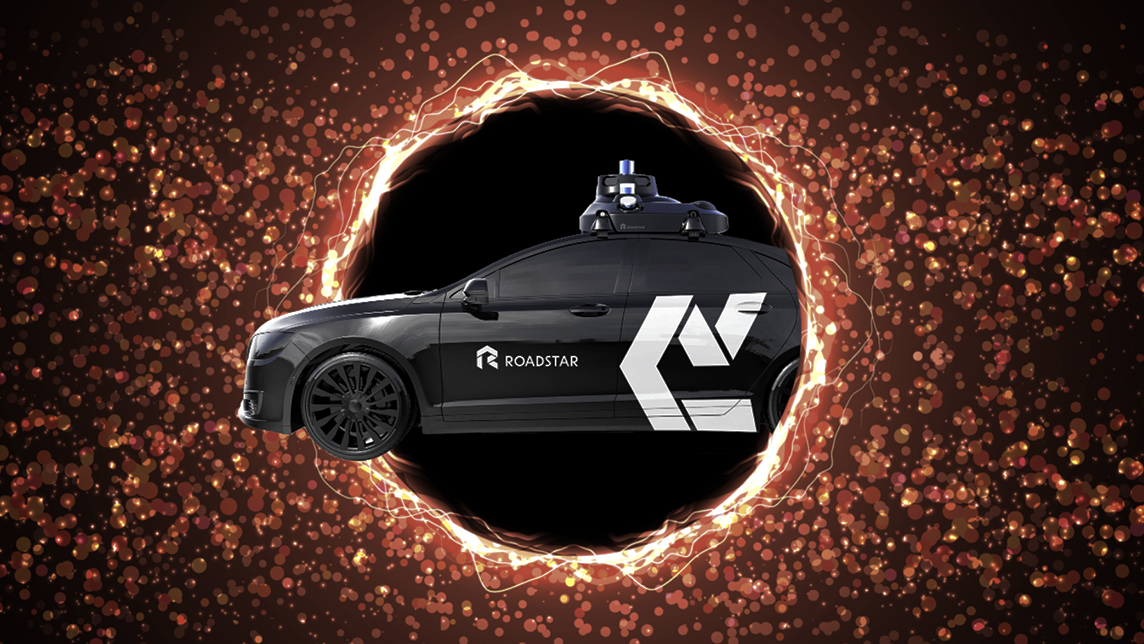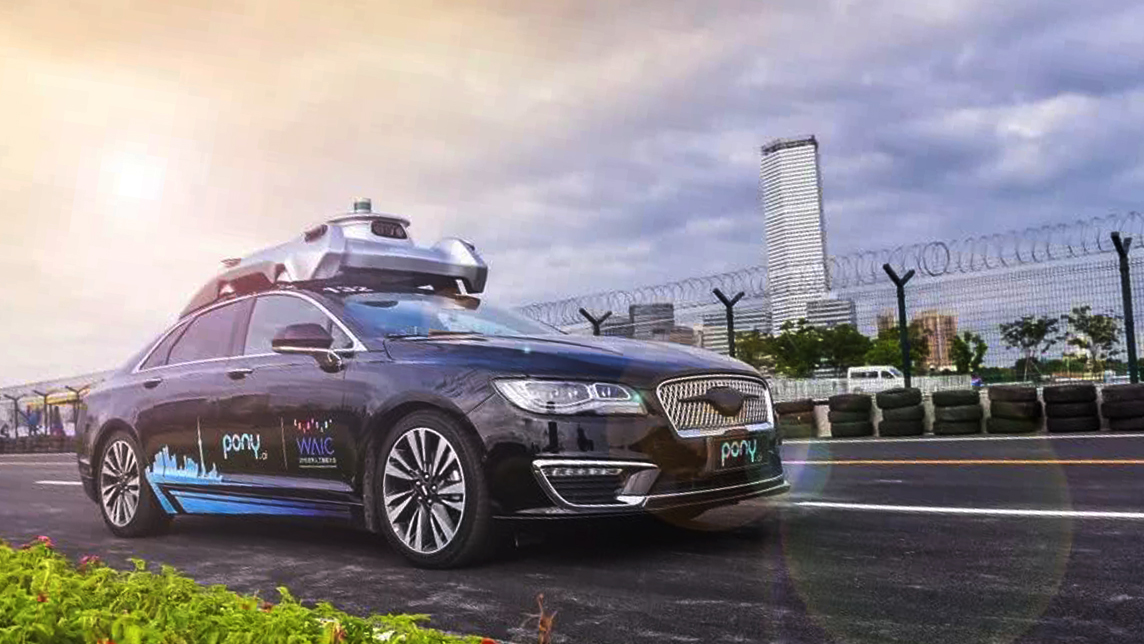In November 2018, at the Fifth World Internet Conference in Wuzhen, autonomous driving startup Roadstar.ai made a huge impression on Chinese media by providing an autonomous driving shuttle service for attendees. According to a reporter from the Beijing News, the car he was riding in behaved like one driven by an experienced and skilled human driver.
Earlier that year, in May, Roadstar.ai had raised US$128m in its Series A funding round, a record high among Chinese autonomous driving startups. The round was led by Wu Capital and Shenzhen Capital Group with participation from CMB International Capital, Vision Capital and Yunqi Partners, among others.
Less than one year later, in March 2019, Roadstar.ai’s investors filed a lawsuit for liquidation of the company. The company’s bank account, which holds nearly RMB 600m, has since been frozen. Its Shenzhen headquarters have closed as well.
Roadstar.ai had already developed a celebrated L4 autopilot system, which, under certain conditions, can drive completely autonomously, before its investors pulled their support. What went wrong for this formerly up-and-coming startup?
One-hit wonder
Before CEO Tong Xianqiao, CTO Heng Liang and Chief Scientist Zhou Guang founded Roadstar.ai in March 2017, the three co-founders were colleagues at Baidu Research Institute USA, where they worked on L4 autonomous driving vehicles.
"The three co-founders all have rich experience in autonomous driving R&D at either Google, Baidu, Tesla, NVIDIA or Apple," said Chen Yu, an executive director at Yunqi Partners, which invested in Roadstar.ai's seed and Series A funding rounds.
After just one year of R&D, Roadstar.ai unveiled Aries, its first-generation autopilot system, in May 2018. It was an all-weather self-driving solution featuring the company’s two key technologies – HeteroSync and DeepFusion – and the most cost-effective LiDARs ever made in China. The system could provide accurate time and spatial synchronization based on fused raw data, making autonomous driving safe and efficient.
In September 2018, Roadstar.ai placed 1st in the Cityscapes dataset computer vision benchmark and ranked in the top 3 in the KITTI 3D object detection dataset, making Roadstar.ai one of the top performers using real-time computer vision at identifying objects and navigating on the road.
At the November 2018 World Internet Conference, Roadstar.ai released its next generation L4 autopilot solution Leo.Ling, built for mass produced vehicles.
The startup had planned to form partnerships with multiple automakers, providing them with self-driving solutions that could be integrated into passenger and commercial vehicles. According to Roadstar.ai, its Leo.Ling system cost less than RMB 300,000, a significant improvement over the RMB 1m price tag of similar L4 systems in China.
While technical skill and product development might have been their strong suit, the three co-founders had little management experience, which proved quickly to be a problem for Roadstar.ai.
Internal strife
When Roadstar.ai was founded, Tong, Heng and Zhou all held the same stake in the startup. However, many experienced investors believe an equal equity split leads to future management issues. So the three founders made structural changes at the company to facilitate fundraising.
After the Series A round, Tong held a 40% stake, while Heng and Zhou each controlled 14.16% of the company. Still, no single founder had absolute control over the company, because none wanted to give too much power to the other two. “I’m the biggest contributor to Roadstar.ai’s self-driving technology. It’s beyond any doubt,” said Heng in an interview.
Ultimately, lack of trust would, in fact, caused the end of Roadstar.ai. Yet it was not one of the three co-founders, but rather Na Xiaochuan, Chief Strategy Officer and a close friend of Tong, who first triggered the infighting.
The US$128m from its Series A entered Roadstar.ai’s bank account in May 2018. In August Na, who was in charge of the company's finances, was caught using investor money to buy two investment products with annual returns of 4% and 5.8%, respectively.
Although Na said he had wanted to use the idle funds to make extra money for Roadstar.ai and that his actions had not created losses, the company convened a board meeting. The board forced Na out of the startup. Tong was also removed as CEO, but remained a member of the board. Heng became CEO, and Zhou succeeded Heng as CTO.
On January 21, 2019, Tong and Heng dismissed Zhou while the CTO was attending the Automotive World 2019 conference in Japan. The pair accused Zhou of accepting fundraising kickbacks and using fake data in a government regulatory report in a WeChat post.
In a personal statement viewed by a reporter from the Beijing News, Zhou denied the accusations and later challenged the company’s decision to remove him by filing a lawsuit against the other two co-founders and Roadstar.ai.
Roadstar.ai’s investors responded to Tong and Heng’s move to remove Zhou through their own statement on WeChat. Because the investors considered Zhou the brains behind the sensor technology, the key to the success of Leo.Ling, they didn't back the dismissal, which they believed undermined both the company and shareholders' interests.
The dismissal also violated investment agreements, they argued, which stated that Roadstar.ai needed investor approval before dismissing an executive.
Disappointed investors
The internal discord drained the confidence of Roadstar.ai’s A-round investors.
Na’s misappropriation of funds was a violation of the investment contract, which outlined explicitly what Roadstar.ai could spend funds on and where it could deposit idle money.
The shares purchase had been a unilateral decision by Na. He did not get approval from the seven-member board, which included the three Roadstar.ai co-founders, Na and three A-round investor representatives. It took the investors three months to recoup the misused money.
After the incident, Roadstar.ai’s investors conducted two internal audits, which revealed more problems at the company.
"Every year, the company needs to buy a large number of vehicles. That’s reasonable for a self-driving startup. But the ownership of some of the cars bought by the company were under the names of Tong Xianqiao and Na Xiaochuan [instead of Roadstar.ai]. This is unacceptable," said an investor representative.
Since its bank account was frozen in late January, Roadstar.ai has been in arrears with more than 20 employees' February wages, totaling US$64,000. Additionally, the startup owes US$142,600 for ending their employment contracts without due notice. The company has also received a number of labor arbitration notices. For the investment arbitration, legal fees have cost the investors RMB 12m and the founding team RMB 6m.
In February 2019, Zhou started a new company. His target is still autonomous driving.
Facing arbitration, Heng insists investor involvement is to blame for Roadstar.ai’s flameout.
The investors have learned a different lesson. “The three co-founders are too naïve and have much to learn before they can become qualified managers. For us investors, the biggest mistake we made was not getting involved in corporate management when things started to go wrong,” said an anonymous investor from Roadstar.ai’s seed funding round.










